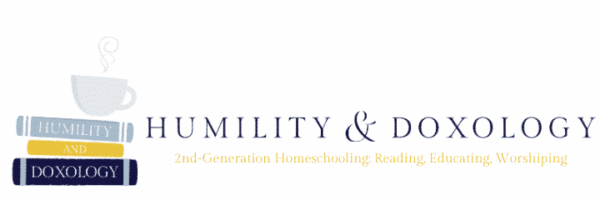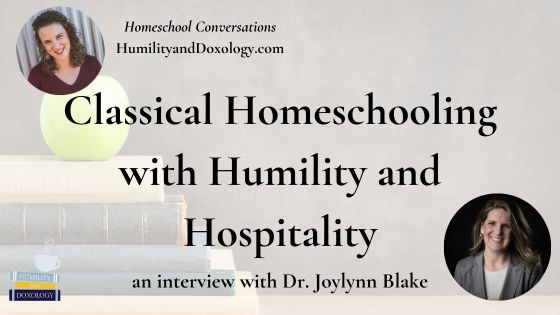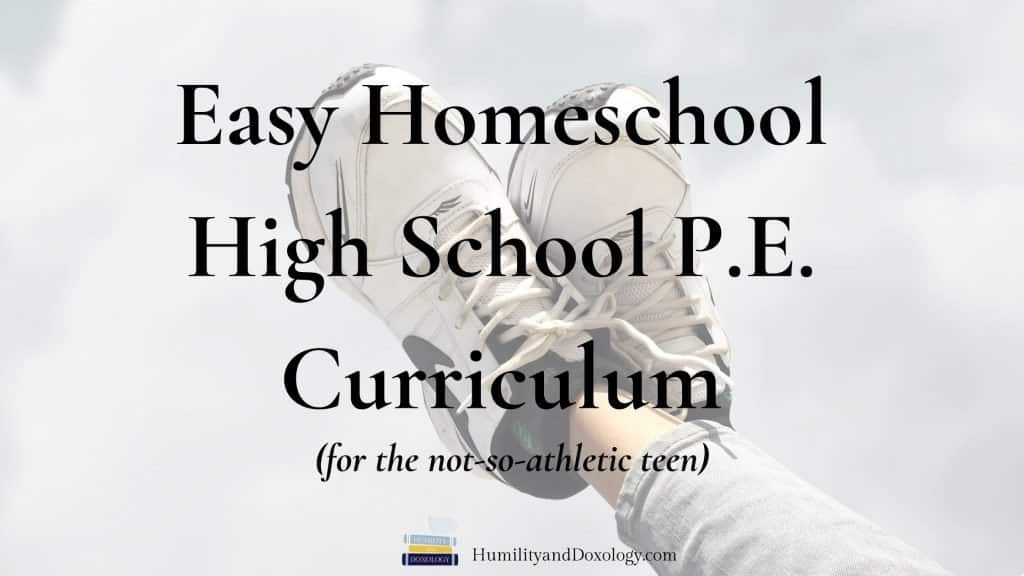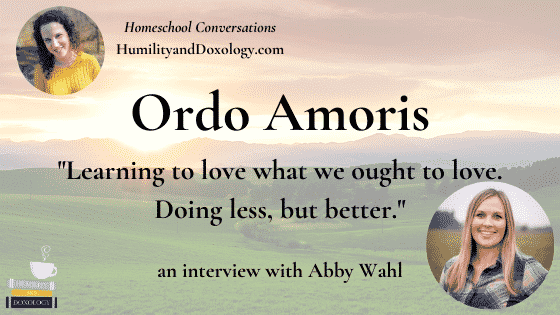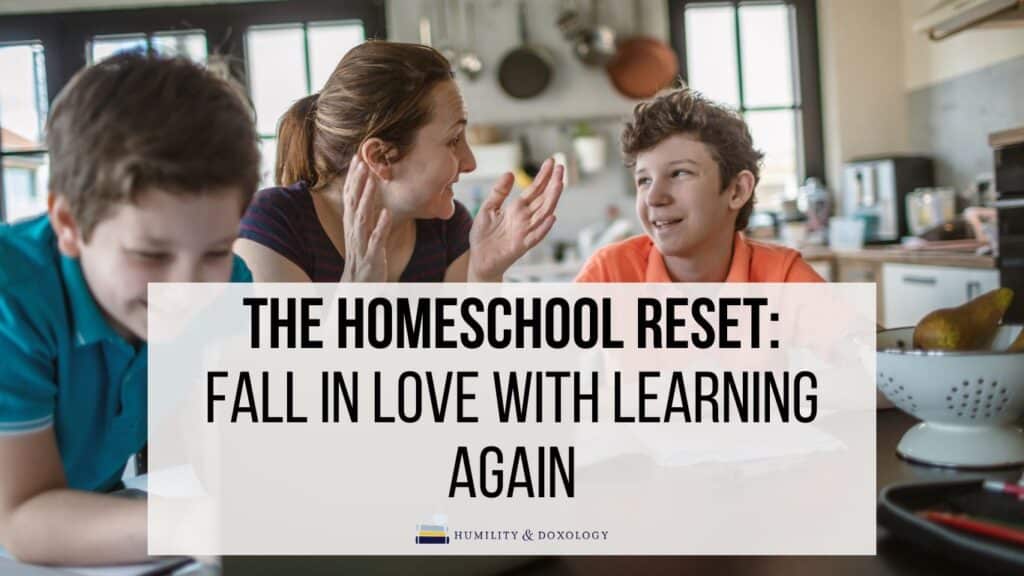Homeschooling is never just about academics. It’s about nurturing souls, cultivating humility, and living lives of hospitality. In this conversation, I sat down with Dr. Joylynn Blake, Director of Scholé Academy at Classical Academic Press, to talk about homeschooling, classical Christian education, parenting through different seasons, and what it means to live missionally wherever God places you.
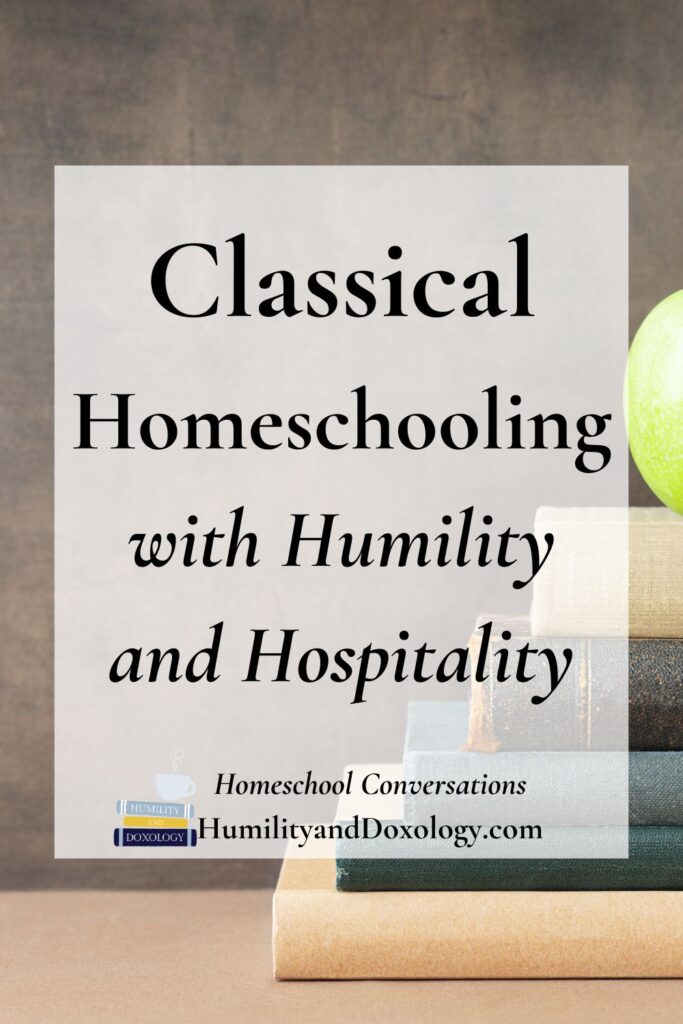
{This post contains paid links. Please see disclaimer.}
- From Mission Field Necessity to Homeschool Beginnings
- From Traditional Schooling to Classical Convictions
- The True Purpose of Classical Education
- Walking the Razor’s Edge of Homeschool Weird
- Advice to Her Younger Mom-Self
- Parenting Adult Children
- Lessons from the Mission Field
- What She’s Reading Now
- Her Best Tip for a Bad Homeschool Day
- Key Takeaways:
- You may also enjoy:
- Find Dr. Joylynn Blake Online
- Check out all the other interviews in my Homeschool Conversations series!

From Mission Field Necessity to Homeschool Beginnings
Dr. Joylynn Blake was first introduced to homeschooling not out of a long-term plan, but from necessity. When her family moved to China as missionaries, there were few schooling options available.
“We had three at that time and my oldest son was just getting school age…So I did about five years of homeschooling in a tiny little 750 square foot apartment in Northern China with our kids.”
Even in that small apartment, God was planting seeds. Her love of philosophy and education had already stirred questions about what makes a good education. By the time she was homeschooling her own children, she had written extensively about educational philosophy and was eager to put her ideas into practice.
From Traditional Schooling to Classical Convictions
Joylynn grew up in Christian schools that relied heavily on traditional curricula, especially the Abeka program. While grateful for the strong phonics and grammar foundations she received, she felt something was missing.
“I felt that there was definitely something to be desired when it came to maturing along with the child and soul formation and virtue formation.”
Her own crisis of faith as a young adult highlighted those gaps. During graduate studies at Regent College, she compared traditional models with what was then a “newfangled thing” called classical Christian education.
Her conclusion was clear:
“From my analysis…classical ed got much better ranks…as what comported with the human psyche, our way of knowing in the world, and then the way we live out that knowledge in practical everyday life.”
Classical education, she discovered, wasn’t just about academics but about forming hearts and souls to love wisdom, virtue, and truth.
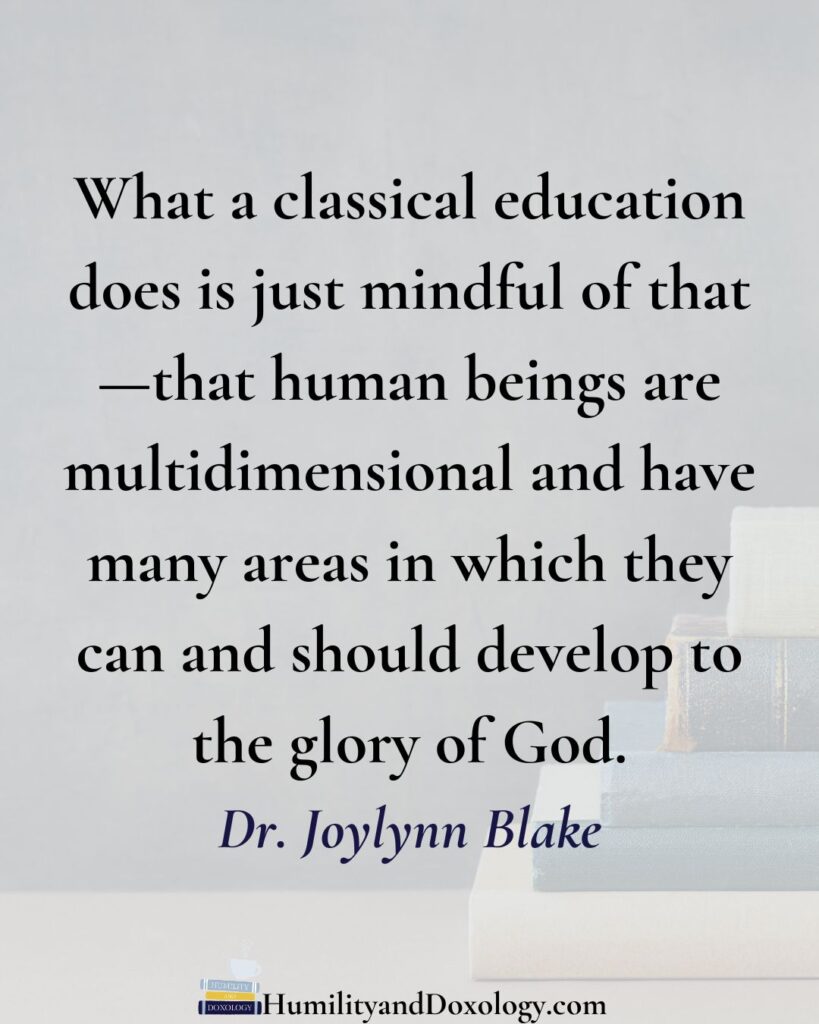
The True Purpose of Classical Education
When asked about elitism in classical education, Joylynn explained that it’s really about developing the whole person:
“What a classical education does is just mindful that human beings are multidimensional and have many areas in which they can and should develop to the glory of God.”
She also pointed out another source of elitism accusations: the lack of diversity in many classical schools and churches.
“If our institutions are not in keeping with the demographics of the country, that can lend toward the accusation of snobbery or elitism…And I think this is on the Lord’s heart, not just a trendy thing.”
Education, for Joylynn, must be rooted in love of God and love of neighbor. Without humility and hospitality, academic rigor can too easily become pride.
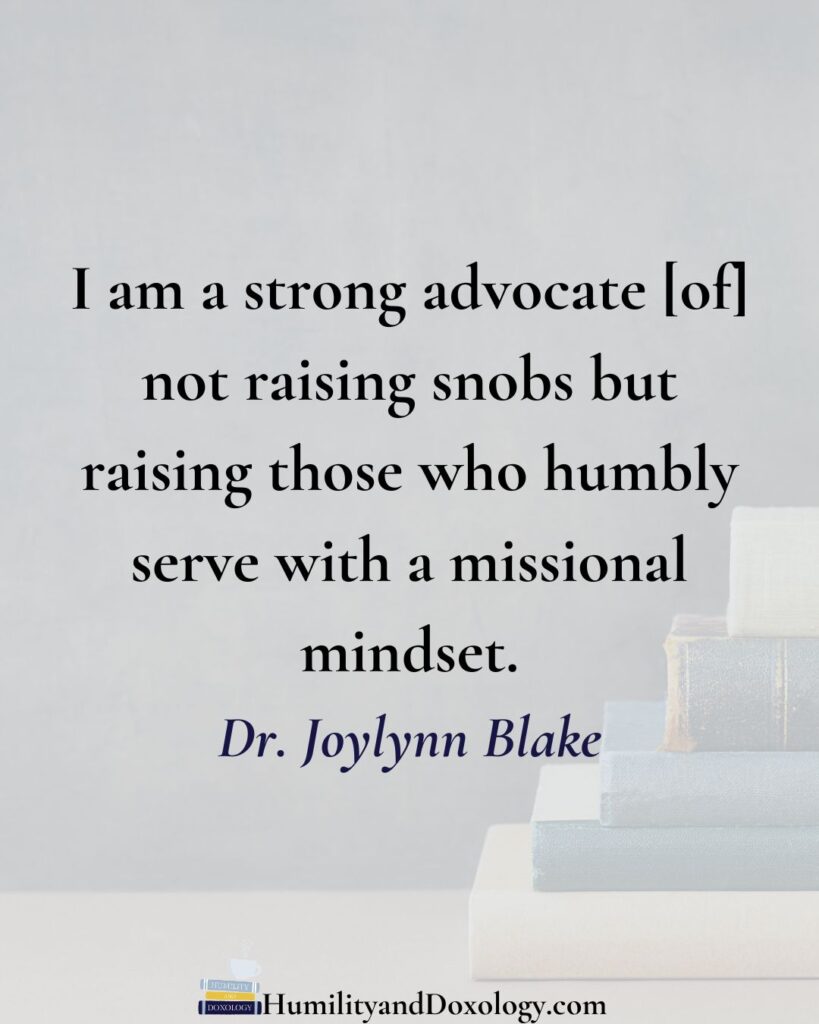
Walking the Razor’s Edge of Homeschool Weird
Homeschoolers are often called quirky or weird. Joylynn embraces that label…up to a point.
“If we’re going to fall in a ditch on one side or another, I think fall in the side of weird versus cool.”
But she adds a crucial distinction: weirdness should never be off-putting. Hospitality and accessibility matter.
She shared a story that made her laugh:
“A friend once told me, whenever I meet kids that talk really well with adults, but they’re a little off…I know either they’re homeschooled or they’re Canadian. And we happened to be both!”
The key is to be “good silly,” not insular or unapproachable. As she explained:
“If you’re too weird, people find it off-putting, not intriguing. And so I think there is merit to salting the oats so that people want to come and taste and see that the Lord is good.”
Advice to Her Younger Mom-Self
Looking back, Joylynn’s encouragement to new moms is simple but profound:
“Don’t worry about the things that aren’t worth worrying about, and that is 99% of the things.”
The early years may feel endless, but they pass quickly. She reminded us that the challenges of toddlers, sleepless nights, and messes eventually fade:
“All of these kids eventually learn how to read. They eventually are potty trained, they shower, they fix their own lunch. There are so many things that have much more eternal value.”
She also shared a powerful reminder from her husband when she struggled with insecurity:
“You know that little girl you’re so ashamed of or embarrassed of? She’s exactly the one that Jesus loves.”
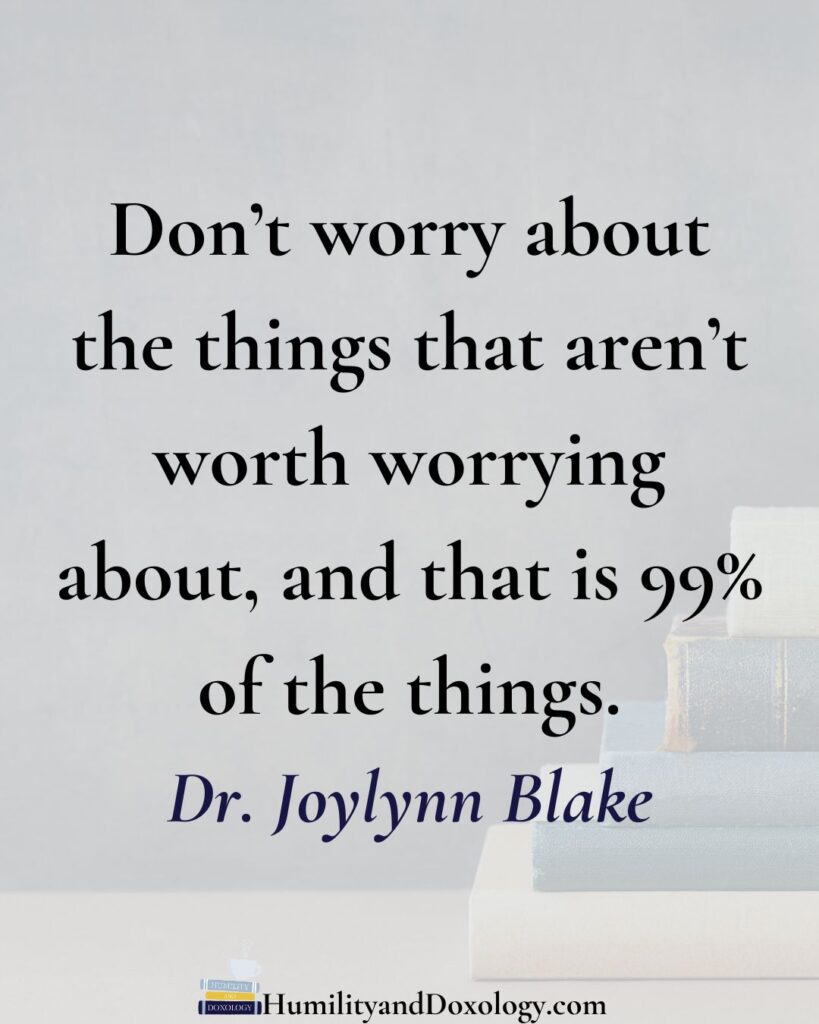
Parenting Adult Children
As a mom of mostly grown children, Joylynn admitted she is still learning, but she has found freedom in her role:
“Now, if anything, we are a coach if asked, an advisor if asked—but otherwise, I am the one who loves.”
This shift came during what she jokingly called a “Holy Spirit Smackdown.” When her adult son returned home during a difficult season, she wrestled with boundaries and expectations. God reminded her that her role was not to control, but simply to love and pray.
“If I feel I must channel those mothering energies somewhere, channel them in prayer. How about that?”
Lessons from the Mission Field
Hospitality and mission are threads that run throughout Joylynn’s story. With family roots in East Africa and years of service in China, she sees every Christian as a missionary.
“Wherever we have been in the world…it has been people coming into our home and experiencing our family…and the encounter with the love of Christ in a tangible way.”
Whether in Texas, China, or Canada, opening their home and table has been central. One guest once told her in tears, “My mother’s never held my hand.” That moment reminded her of the deep power of simple acts of love.
“We are missionaries. The question is, what gospel are we preaching? What are our lives attesting to?”
What She’s Reading Now
Joylynn recently finished The Doors of the Sea by David Bentley Hart, a theological reflection on suffering after a tsunami. She’s now immersed in Thinking in Systems by Donella Meadows, a book on how structures shape outcomes.
“I actually find it helpful for thinking about homeschooling, family relationships, and dynamics.”
Her Best Tip for a Bad Homeschool Day
Every homeschool parent faces rough days. For Joylynn, the best reset wasn’t sending her children to time out—it was taking one herself.
“Usually the children…are being true to their nature at that age and stage. So for me, whenever a homeschool day needed a reset, it was usually me who needed to go in timeout, not the child.”
Sometimes, moms need to step away, pray, and reset the tone of the home.
Key Takeaways:
- Homeschooling can thrive even in small, challenging circumstances.
- Classical education is about soul formation, not elitism.
- Education should develop the whole person: heart, soul, mind, and strength.
- Diversity and hospitality in education matter deeply.
- “Good weird” in homeschooling can be a gift if paired with humility.
- Parenting adult children requires shifting from directing to simply loving.
- Moms should release unnecessary worry and cherish fleeting seasons.
- Mission work is about opening your home and heart, wherever you live.
- Resetting a homeschool day often starts with the parent, not the child.
- Community support and shared teaching strengthen the homeschool journey.
You may also enjoy:
- The Harmony of Learning: Greg Wilbur on Music, the Quadrivium, and Loving God Through Beauty
- Narration as the Art of Learning: A Conversation with Adrienne Freas
- Faith, Story, and a Literary Life with Dr. Carolyn Weber
- Classical Education, Homeschooling, and the CLT
- Classical Education for Students with Special Needs
- Natural Philosophy: Recovering a Natural Science and Christian Pedagogy (with Ravi Jain)
- Classical Conversations and Couch Schooling (with Charity Miner)
- Latin for Children: our favorite homeschool Latin curriculum from Classical Academic Press
- Plutarch for the Homeschool Family (with Dawn Duran)
- A Common Arts Education in Our Classical Homeschool (with Chris Hall)
- Why We Pursue a Christian Classical Education in Our Homeschool
- Curiosity and Surrender: Classical Education, Poetry, and a Longing for Light (with Jennifer Souza)
- Reading and Teaching the Great Books (with Kristen Rudd)
- Patience, Wonder, Ignorance, and Joy in a Classical, Charlotte Mason education (with Karen Glass)
- Repentance and Discipleship in Christian Classical Education (a video interview with Dr. George Grant)
Find Dr. Joylynn Blake Online
Joylynn Blake obtained her BA in philosophy at Dallas Baptist University and a Master’s degree in theology from Regent College, in Vancouver, Canada. The Blake family served as missionaries to China for eight years before returning to Dallas where Joylynn earned her doctoral degree in Educational Leadership and was awarded the Outstanding Treatise award for her study of urban classical schools. She currently serves as the Director of Scholé Academy, a division of Classical Academic Press. Joylynn and her husband Todd have four adult and nearly adult children.
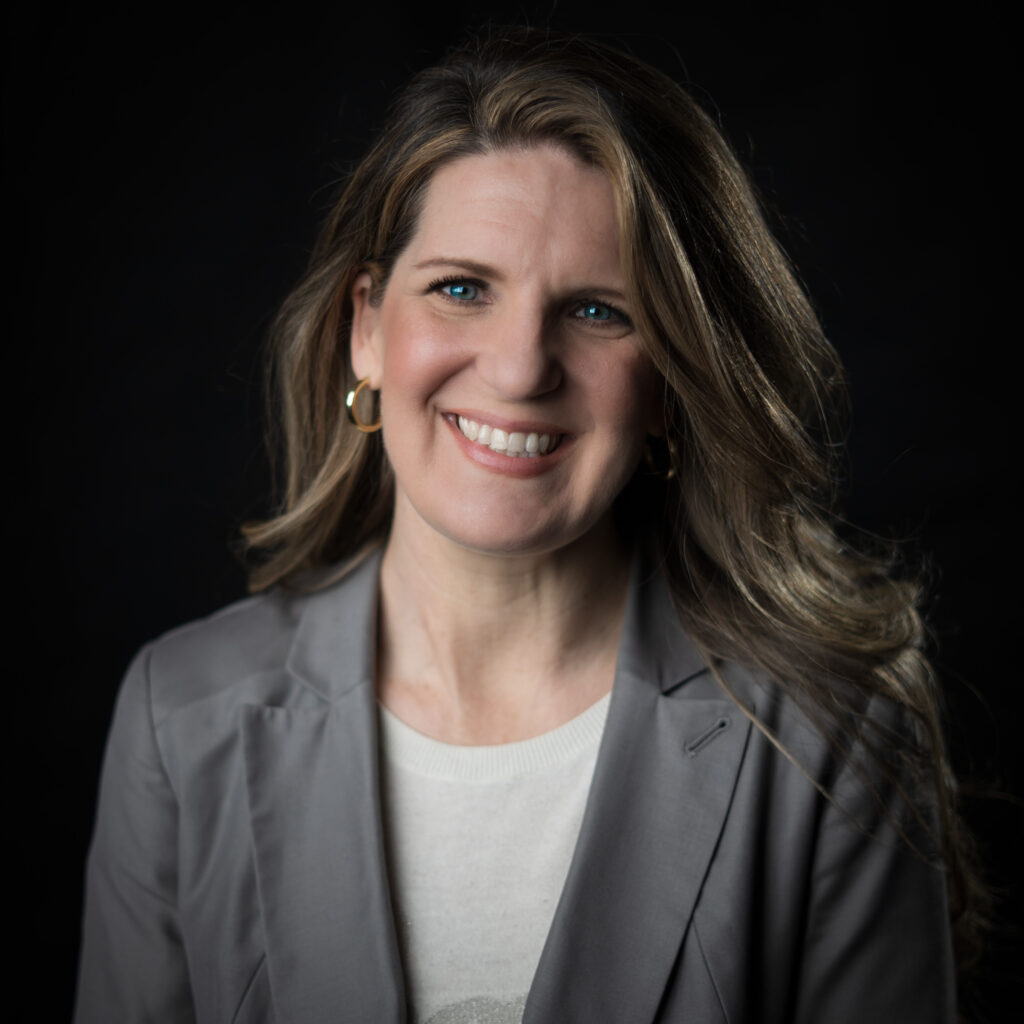
Check out all the other interviews in my Homeschool Conversations series!
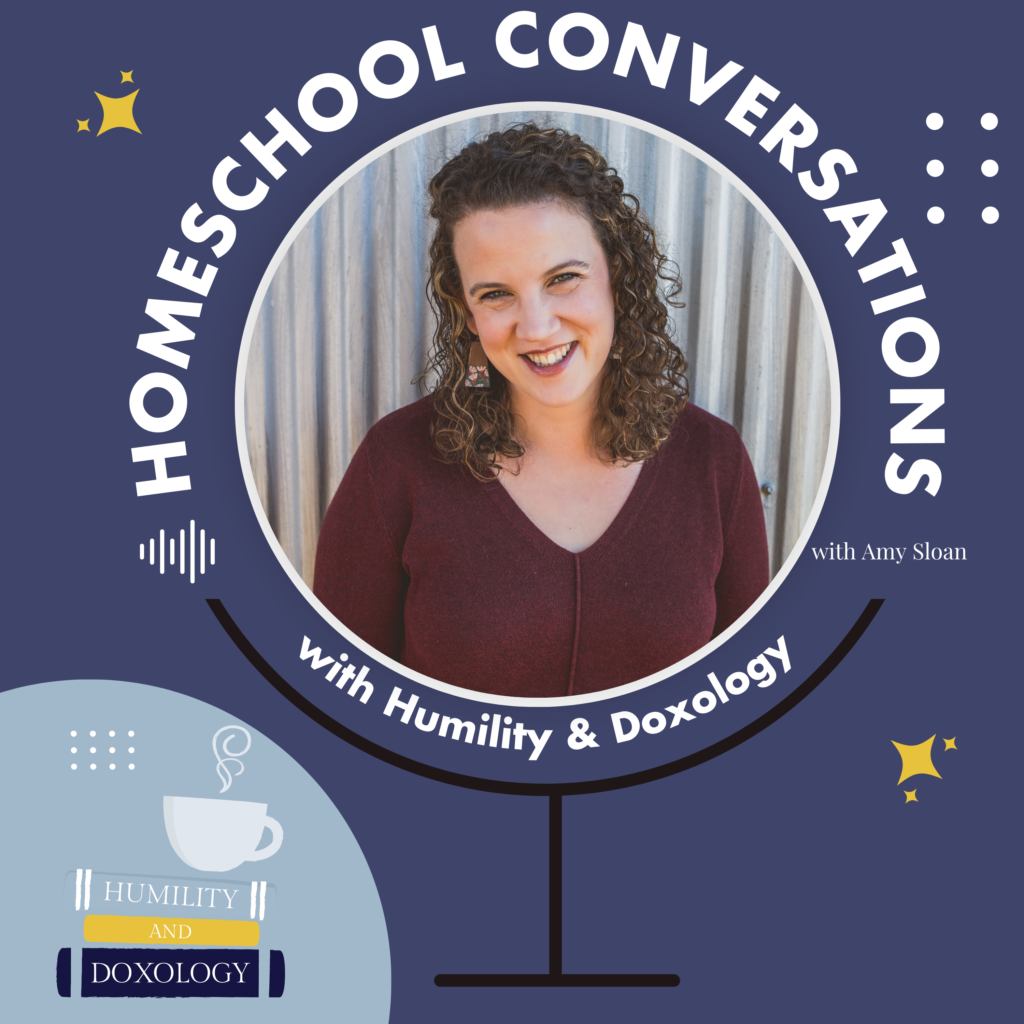
Amy Sloan: Today I am joined by Joylynn Blake. She obtained her BA in Philosophy at Dallas Baptist University and a Master’s Degree in Theology from Regent College in Vancouver, Canada. The Blake family served as missionaries in China for eight years before returning to Dallas, where Joy Lynn earned her doctoral degree in Educational Leadership and was awarded the Outstanding Treatise Award for her Study of Urban Classical Schools. She currently serves as the Director of Skolay Academy, a division of Classical Academic Press, a favorite curriculum provider in our home. Joy Lynn and her husband, Todd, have four adult and nearly adult children, and I’m just delighted to be able to chat with you today. Before we officially started the recording, we were reflecting on how we intersected at a Made to Home School conference, and both were like, I think I have a lot in common with that lady. I want to talk to her again. So I’m glad you’re here. But there’s your official introduction and bio. But tell us a little bit about yourself and your family and how you first got introduced to homeschooling. Yeah.
Joylynn Blake: Well, thank you, Amy. I’m so delighted to be here. And I was first introduced to homeschooling out of necessity because our kiddos were being packed up along with a lot of suitcases to head to China. And so as a result of that, we had three at that time and my oldest son was just getting school age. He was just turning five and I thought, huh. And the city where we were placed didn’t have many international options and at that time and still aren’t fluent in Mandarin. So it was kind of shoehorned a little bit into, hey, I guess I’ll be homeschooling. But thankfully I had done some research leading up to that that I was really excited about the prospect and I was looking eagerly forward to it because I had written some things on my grandiose notions of what good education should be about and like. And so that’s kind of was our launchpad into that. So I did about five years of homeschooling in a tiny little 750 square foot apartment in Northern China with our kids. So that’s what got me in. That’s amazing. And yes, so I wrote my homeschool senior thesis on classical education and was really the height of my expertise on educational philosophy and how to be a good parent. know, I really peaked at 18 or whatever. Isn’t it good that the Lord loves us too much to leave it there? Amen. How did your sort of thoughts and approach to education grow and change over the years? Were you always interested in classical education or how did that come about? Oh, that’s a good one. That’s a good question. So, speaking of peaking at 18, it was just a little, a few years beyond that. But I did some study initially, like you mentioned in my bio, my undergrad degree was in philosophy. And I studied under a man named David Noggle, love him, hero of mine. He’s since passed on to be with the Lord. But his sweet spot philosophically was in worldview. And so he wrote some groundbreaking things on worldview the history of a concept and he it was like nominated i mean it was christianity today’s book of the year for for a little bit and he influenced me heavily in looking at things more comprehensively and so when i was going to go do my master’s work i was like well i don’t know where to go and he said well if i had mine to do over again i’d go to regent college so that’s what i did and by then i was married had a few kids well we had a few kids while we were there as well but um i wrote my thesis my master’s thesis on just a tiny little concept uh what is christian education little little topic um but what kind of prompted me was because i grew up going to private Christian school for the most part. I did some public schooling, some real small schooling, so it could basically be called homeschool. It was like my mom teaching three or four other kids, you know, plus me. But for the most part, I was in a private Christian school. And in those days, back in the olden days, the large curricular provider was very traditional and orientation. I’m sure many people have heard of the Abeka curriculum. That was a very popular Christian school curricula at that time. So anyway, that was the lion’s share of kind of my upbringing and there were some really good resources for what we classical educators know is the grammar stage, like laying foundations phonetically, things like this. But I felt that that there was definitely something to be desired when it came to maturing along with the child and soul formation and virtue formation and things like that. And when I hit my own crisis of faith as a young person, I didn’t find that I was fortified with many thought resources in that regard. So I went to, like I said, to Regent College, wrote my master’s thesis, and I compared two models of Christian schooling. One was this traditional, more Abeka-style model, and then this newfangled thing called classical Christian education that I had been put onto, and I kind of compared the two and analyzed the two. And from my analysis from a philosophic framework of what really accords with the way that we know, the philosophic discipline of epistemology and the way that humans come to know anything, classical ed got much better ranks from you know my assessment, my evaluation. And then I had some points of critique as well at the end, but that was my foray into really looking seriously at and then embracing the more classical model as just what, to me, comported with the human psyche, our way of knowing in the world, and then the way we live out that knowledge in practical everyday life. I love hearing that and just how it came through exploration, and I’m sure as you continue to study and then implement things, you continued to grow and deepen in your understanding. I believe, is Dr. Noble also the one who wrote Understanding the Times? No, but he was definitely, Understanding the Times was, I believe, James Sire? No, I might be wrong about that. Ask the Universe Next Door. Yes. Also an excellent one. Indeed. I’ll have all my kids read that one before they leave home. Yeah, exactly right. I’ll have to look that one up later. I have it on my shelf over here, but I will not get sidetracked there. But I was like, ooh, I need to go find it. We’re both going to have to look it up. shelf over here, but I will, I will not get sidetracked there. But I was like, oh, I need to go find it. Yeah, you’re exactly right. Yeah. Yeah.
Amy Sloan: Well, I think a lot of people hear the word or the term, you know, classical education, and they associate this idea with kind of an elitism, perhaps, or, you know, we’re the snobs who only care about impressive academic rigor and what we can sort of achieve and point to is these great academic achievements. Our book lists, perhaps, and our Latin declensions. But what would you say is the true purpose of classical education? How might we as Christian classical educators maybe be contributing to the negative stereotypes and how can we kind of pursue a humble, restful learning instead? So there’s sort of two parts to the question. Big picture and then application. Yeah, yeah, yeah.
Joylynn Blake: Well, I love this. This is a little bit of a drum I have to beat, sort of, but I do want to toss it back to you, Amy, eventually, because I want to hear your thoughts also on why it is you think that this reputation has been earned, whether righteously or unrighteously, in terms of, you know, kind of classical ed being full of elitist snobs. So to your first question, what’s the point of classical education? I think we could just as easily take off the adjective classical and say what’s the point of education? To me it is very in keeping with what the Lord said about love him with all our heart, soul, mind, strength. That’s pretty doggone comprehensive. That is, and we’re in all of our life we’re charged with growing up and cultivating a move from infancy toward maturity and that entails these multi-dimensional aspects of who we are. Heart, our affections, our soul, which is our emotions and however you want to define one’s soul, our eternal orientation and so forth, our mind, to love him with all of our mind and all of our strength, our physical power, the things that, you know, what we would call the common arts. So to me, what a classical education does is just mindful of that. That human beings are multidimensional and have many areas in which they can and should develop to the glory of God. And so I think that classical ed, in contrast to more progressive contemporary models of education that are very, very abbreviated, time-bound and, you know, classical ed has this long-standing proven history of the formation of the human soul through developing proper appetites, a love of wisdom, a love of learning, a love of an orientation toward the good. So for all those reasons, when we say what is classical education for. It’s, you know, for the education, for the cultivation of the human soul toward virtue. Yeah, so that’s why I’m drawn to it. Now the question of why does it get the reputation of, you know, kind of elitism or snobbery, that’s where I want to toss it to you first. Have you ever heard that accusation? Tell me a little bit of your feedback and then I’ll give you some of mine.
Amy Sloan: Yeah, I think definitely, especially as I have interacted with more people online, there can be a lot of assumptions that, you know, those who are drawn to classical education are drawn to it for the sake of this very rigorous, intense, high-level education in an academic sense, where it’s almost synonymous with, you know, elite college prep kind of of academics, which I think misunderstands the purpose of education in general and really the beauty of a Christian classical education specifically. And so a lot of people, like even when it came out, I was having a conversation with some folks and they found out that I don’t require, I personally do not require my children to write things in cursive. And they were like, but you’re a classical educator. if somehow cursive, you know, I was like, well, you know, Homer wasn’t writing in cursive either. Neither was the Apostle Paul. So just certain things that are hard or difficult or sort of associated with challenging academics seem to have become synonymous in some people’s minds with classical education. And I think I can see the human heart, that pride that comes of wanting to be able to point to our children as these products, these amazing things, these metals that we can say, look, you know, at the strength of my hands and what my mind has done, like Nebuchadnezzar, right? And so I think that natural prideful inclination of a sinful heart can play into that, and that’s certainly not something just a classical educator faces. But when I think about the true purpose of education. Dr. George Grant says education is repentance. In my own church’s tradition, we say the chief end of man is to glorify God and enjoy him forever. If that’s man’s chief end, that ought to be the purpose of education. For me, humility and doxology is not just the name of my website. I named the website because for years I had told my children, as we would discuss the purpose of our homeschool, is I wanted it to lead them more and more to a lower view of themselves, a humility, and a lot of wonder and worship and praise of God. And so I see, you know, in the classical education, this beautiful opportunity to be humble before information and history and people from many, many, many, many millennia of, you know, work and production of wisdom and thought and beauty, but also an opportunity to really wonder and explore and ultimately give credit to the Lord, who is the source of truth, goodness, beauty. It’s defined by His character. So that would be my answer to the question.
Joylynn Blake: And it’s beautifully said, beautifully spoken, and thank you. Thank you for, I guess, playing ball with me that way because I want, I don’t think it could have been said better. I want to also answer it from one other angle, and that is the optics of it. What people see, and this is not as much when it’s related to homeschooling, it maybe even is more related to brick and mortar locations. But I think that classical schools and private schools in general can run the same risk that our churches run, and that is to appear to be the most segregated institutions in society, the lingering segregation that seems to still be apparent. And so what I mean by that is that in in our country, the United States from which we speak right now, it’s, and especially where I live, they’re in the grocery store, on the street, in restaurants, in banks, in places of business, all kinds of places. I am interfacing all the time with black, brown, and white faces all the time, but you know where that doesn’t happen? It doesn’t often happen. Or the churches. Yeah. Churches and schools. And if our desire is pointed toward heaven, if our mentality is that we pray thy kingdom come, thy will be done on earth as it is in heaven, and we know that heaven will include every tribe, tongue, and nation, then it does seem to me that if we have institutions that we have founded in countries that are by their nature diverse, but the institutions themselves are not diverse, that can lend toward the accusation of snobbery or elitism. And I wouldn’t say that across the board. I wouldn’t say that because, for example, in China, if I saw a school that was 95 to 99% Han Chinese, I would say that’s fully in keeping with the demographics of the country. The thing is that oftentimes our schools our churches are not in keeping with the demographics of the country. And we’re in a particularly volatile time right now in our country because even people who have had long-standing convictions about this matter, now they can be in the line of fire. Accusations of wokeism get thrown at them and all kinds of things, whereas I’m like, I think this is on the Lord’s heart, not just a trendy thing, a banner to wave. So that’s the other dimension of it. Not only is it susceptible to accusations of elitism because of the rigorous academics, the emphasis on Latin, or, you know, cursive or whatever it may be, but then it’s also the particular way that groups look who classically educate. And so I think that there is work for all of us to do, the beautiful work you’re already doing, with humility and doxology.
Amy Sloan: Yeah, that is a topic that I think deserves an entire other interview, really. I would love to pursue that, that whole topic as well, um, because I feel like I want my, my initial response is, okay, so, like, what can we, let’s fix this, you know, and I don’t think we can fix it in the next, you know, 79 seconds on this podcast or even fully and carefully address it, but I don’t want to just move on without acknowledging I agree with what you’re saying, and I think that is something, at the very least, if we can be mindful and, like, have eyes to see and contemplate and ask, pray for wisdom, right? Some of these are like, okay, so how do we just, you know, fix this is not going to be always immediately easy or apparent, but to pray for wisdom and to recognize something that maybe we just sort of have looked over and not even thought about is valuable. Yeah, agreed. Yeah. Well, as a second generation homeschooler, I really don’t mind being a little quirky, a little different. I’ve always been outside the box. So, you know, that’s good. And so, when people say, oh, homeschoolers, you might be a little weird. I’m like, I mean, yeah, probably I am a little weird, but I’m okay with that. And I, one of my favorite movies is completely ridiculous and silly. It’s the man who knew too little. It’s a slapstick comedy, but one of the lines from there, I think about all the time. He’s like, it’s good, silly. So, you know, that’s how I think about homeschool weirdness. But I know that you, you, you use the phrase to mean we have to walk the razor’s edge of weird. So what is, what do you mean by that and how can we homeschool and kind of walk that line without being too weird? Just the good silly.
Joylynn Blake: Yeah, the good silly, the good weird. And I’ll say this, I’ll qualify from the beginning, like it’s hard to walk the middle way and if we’re going to fall in a ditch on one side or another, I think fall in the side of weird versus cool. Okay, I’m just going to say that from from the get-go. But having said that, I think that the question of why even try to hit that sweet spot middle way? Why not just plow that road down the weird trough? But I think it goes back to that notion of humility and hospitality because if you’re too weird, people find it off-putting, not intriguing. And so I think there is merit to salting the oats so that people want to come and taste and see that the Lord is good, taste and see that this is a good thing. It doesn’t mean that you become so seeker sensitive and friendly about everything that you do that there isn’t a distinctiveness. But okay, I’m going to tell you two like funny little quips that I have heard before that sort of indicate the two sides of the lane here. One was, this is years ago, and I had a friend bring a friend over and he met me and our kids and everything and he was having conversations with my children. And he was, you know, kind of just a little intrigued, a little perplexed, and just really conversing with my young children. And his remark was, whenever I meet kids that talk really well with adults, but they’re a little off, and maybe it’s in a good way. I know either they’re homeschooled or they’re Canadian. It’s cracked me up because we happen to be both actually. I mean, but two of my four children are actually dual citizens and are Canadian as well. So I was like, hey, we got it both covered. Oh my goodness. That was hysterical. So funny. So he knew, you know, there’s this sort of this off thing. And then I’m going to credit my friend Allison, who is so funny, but she said her kids, they have this line. It’s not necessarily a good thing, but she’s like, they use it before and they’re all homeschooled and everything. But when, when the weird is too far on the side of weird, they’re like, uh, they smell like a homeschooler. They smell like a homeschooler. That is hysterical. So funny. Um, so again, to preface all of it to say, I think, um, weird that that’s, if we wanted generic, if we wanted cool, if we wanted, uh, you know, contemporary and relatable, we’d have them in the modern system. We already have put our money in the basket of a different way of being in the world. But again, to me, to have some of that relatability and some of that accessibility to other people so that there’s not so much oddity that they can’t have a connection if they seek it with what it is you’re doing and the reasons why you’re doing it. I like how you framed it as hospitality, which really goes to that love of neighbor, which goes back, you know, we were talking about the purpose of education, love of God, love of neighbor, right? We want to make sure that we’re truly loving our neighbor. And that often looks like being different, right? Because we want to be filled with the aroma of Christ. You know, if we’re going to smell, let’s smell like Jesus, not smell like a weird homeschooler.
Amy Sloan: Wow. I think about my own children, you know, two of them now have graduated from my homeschool, so like adults and growing into further adulthood here. And, you know, they’re a little quirky, but they’re wonderful. I’m thankful for them. They smell like Jesus. But, I love talking to other moms of adult children, just because there’s some perspective. I’m still, like, I still need that wisdom and perspective myself, and I know other moms who just, like, it’s hard to get that vision of our children, you know, after they leave our home and long-term kind of perspective. So what would you say if you were talking back to your new mom self about maybe mothering general and then education in particular just from this as you’ve seen the Lord work in and through you and your kids over the years.
Joylynn Blake: Um I think that I would I would say to my new mom self something that was said to me and it was it was beautiful and I clung to it and I hung on to it. It is that it goes by so fast and don’t worry about the things that aren’t worth worrying about and that is 99% of the things as Christ himself told us even you know what we eat what we drink and what we wear in his estimation is not worried worth worrying about so to me I think that as moms especially moms of young children, especially as new moms, worry is almost an irrepressible, instinctive reaction to what we feel is shouldering responsibility. That we believe that being responsible does entail worry and I would say it doesn’t and it doesn’t have to and so I would say to new moms it goes by really fast. So the first years are the longest of your life and then the others are like that. It’s crazy. I don’t know if you’ve experienced that, Amy. You probably have where like, oh my goodness, those toddler years and those infant years and the sleepless nights and the those seem really long. And then trying to homeschool while you’re corralling these and while you’re doing it, it seems so long and exhausting. But then it really accelerates. They hit middle school and high school and it really accelerates. So cherish the time and do not get caught up worrying about the stuff that doesn’t matter.
Amy Sloan: Yeah, really a really good perspective. I was actually just talking to a friend earlier. I was remembering all of my five were little and we would just go through these seasons where they would just like pass the vomit bug amongst themselves and it would never go away. And you just thought to yourself, I’m going to, there’s going to be a vomiting child in my house, like, forever. I’m never going to get out of this, you know?” And then, of course, it does.
Dr. Joylynn Blake: It passes and then the teen years go by so quickly, so very quickly. And it gives you that perspective, all those things that you thought were so very important about that five-year-old and, you know, whatever. And now you’re like, yeah, you know, all of these kids eventually learn how to read. They eventually are potty trained, you know, they shower, they buckle themselves, they fix their own lunch. And so there’s so many things that have actual much more eternal value and more significance. And I wish I had focused more on those bigger picture things and less on maybe the things that didn’t actually matter.
Yeah. Yeah. Well, and we have to have in the same way that we grow up and see that we need to have grace on our children and the steps of their own maturity and the time it takes. also have to have grace on ourselves and our memory of our young mothering. We have to be gracious to ourselves and my husband told me once which I love this line so much because I was encountering again this pain of imagining going back home to be with my family. I love my parents but I and I love my big sister but in all of that I would get embarrassed of myself or ashamed of what I hadn’t yet accomplished or hadn’t yet pulled together or didn’t yet know or all of this stuff and in other avenues and aspects of myself, I was like a pulled together professional person. Why was I reduced to this puddle of insecurity when, you know, in these dimensions of my life and I was just, you know, crying, having a little meltdown about it and my husband was like, babe, you know that little girl you’re so ashamed of or embarrassed of? She’s exactly the one that Jesus loves. We have to have grace to ourselves too and our memory of ourselves on the times when we didn’t maybe have it all together and know everything. She’s the one Jesus loves too and his grace is big enough to cover and we have to rely on that that his grace covers our insufficiency because we will never be sufficient all on our own, so.
Amy Sloan: Amen. And that goes for moms of youngers and moms of teens and adults. And this is where I’m just going to ask you for your wisdom, since I do, I’m transitioning to this new stage of parenting with adult kids. What advice would you give to moms at this stage? Although I think that advice of resting in Jesus and his sufficiency is, you know, the best advice of all that any other words of wisdom you have.
Joylynn Blake: Hmm. Well, I’m in the thick of learning this myself, so I wouldn’t call myself an expert, but all three of my four have launched, you know, and only one left in high school. But I think where I had my biggest aha, I like to call it the Holy Spirit Smackdown in a friendly way, but this was at a time a number of years ago my oldest son had gone off to New York to university and so forth. And he was living his full, you know, young adult life. Catching the subway, going to class, working, you know, while he was in college and living in Brooklyn on his own and things like this. Well, COVID hit and a broken engagement and whatever, and he’s landed back home. All of this leads him back home. And we were delighted to have him. I love having a full house. But that led me into this little question mark of like, okay, so what does this mean? Like, does he do chores now? What is it, you know, I mean, what are these things about, like, what is the extent of my mothering and him being responsible? He’s under a roof and whatever, whatever and um i know that that adult children living at home it has its other dynamics that you have to answer however the the holy spirit smacked down the helpful guidance was this simple resting in my spirit of here’s your job you get to love him Everything else, trust me with it, but the more that I try to strategize and mother and oversee, that time is gone. Now, if anything, we are a coach if asked, an advisor, a counselor if asked, But otherwise, I am the one who loves. That’s what I get to do. I’m free to just love you, not worry about you, and that’s a discipline in and of itself. Not counsel you, that’s a discipline in and of itself, or not uninvited counsel. And if I feel I must channel those mothering energy somewhere, channel them in prayer. How about that?
Amy Sloan: That is such wise advice. Yes. Oh, I think, you know, well, I think one of the things that’s interesting with parenting, even teens, but definitely, you know, as they’re on their own and independent, is you’re face-to-face with the reality that was always true, which is that you cannot control your child’s heart, and ultimately you rest in the work of the spirit and the fact that God loves your kid more than you do. You feel like you have more control when they’re two and you can sling them up over your shoulder and carry them screaming out of the grocery store, but ultimately you only have control over their little body. You still can’t really control their heart. And the teen years and the adult years make that abundantly clear, right? And so to be able, I love that just reminder, like, all of those energies or those worries or those really, really wise pieces of advice that you want to pass on, to channel that in prayer, and not in worry, and not in lecturing, but in prayer. It’s really good. Yeah. Well, here at the end, I want to, oh, no, I don’t want to ask you those questions. Amy, when you are looking back at your transcript, you should cut that out, because you had something else to ask her first. Jolynn, I wanted to ask you a question about your experience in the mission field and how that has shaped the way you think about what it means to be a missionary at home as well as abroad.
Joylynn Blake: Oh, thank you for asking. Thank you for asking that. Okay, so for one, missionary work is kind of in my blood and in my family. My mom grew up in East Africa. Her parents were missionaries in Kenya and Tanzania and so forth, so like to this day we have like zebra skins hanging on the wall like, yeah, we shot that for dinner. So there was some of that reality in our world. And then my own parents, for many, many years, all of my upbringing, really, we lived in the U.S., but we ran a 24-7 ministry, which was called the House of Refuge for homeless families or destitute or abused women or things like this. people living with us and coming into our homes for a lot of time. And then, of course, my hubby and I and our our troop in living and working in China for seven years. So that’s in our blood, but I guess this is what I’d say about reflections on the life of the missionary and missionary work at home. and that is that the world is growing smaller and more interconnected in this way. Like how much like global access is there between youtubers and social media influencers and satellites and news around the world and it used to be that cultures and people were more more remote than they are now. I guess that’s one way to put it. So that’s just a practical observation. And then also another practical observation is in addition to, you know, kind of the internet bringing us all closer together, there’s also that piece of there’s just more fluidity between countries and travel and borders and all that kind of stuff. And in all of that, you know what, people is people. There are people who have hopes, dreams, their wishes, their worries, all of that. And Christ calls us to love and serve. And in that love and service to have an open, open home. And I will say that for our family, wherever we have been in the world, whether China, Canada, Ohio, Texas, or anywhere in between, it has been people coming into our home and experiencing our family and experiencing what they say is the love there that has been really transformative. And we had a we had a friend who had a little crisis, a little domestic crisis, and it was one my son’s friends and we’re like you can stay with us of course you can stay with us you know anytime and um and i remember it just uh one evening before dinner you know holding hands in prayer and um he called me and my husband into the other room and he’s like teared up and he’s this big bulky guy in tears. My mother’s never held my hand. That human touch and the encounter with the love of Christ in a tangible way where there’s always room at the table, you’re always welcome, come in, just come and see, come and live, come and hear, experience the love and the spirit of Christ. And, you know, preach the gospel always, if necessary, use words. So that’s what I would say about being a missionary. We are missionaries. The question is, what gospel are we preaching? What are our lives attesting to?
Amy Sloan: It’s interesting how, in all these different topics and avenues we’ve discussed today, the recurring theme of the love of neighbor, hospitality, right? Education ought to be hospitable, both to the literal children in our home or classroom and to the community, to our neighbor, and how intricately connected that is with this idea of a missional, hospitable, loving life, right? Whether it’s just in our home and, you know, we’re able to show the love of God there and what someone might generally associate with more official ministry work. But whatever we do, right, all of those things are all connected with loving the Lord, loving our neighbor, having a hospitable, welcoming, humble heart. And I love how that has come up again and again, no matter what we’ve been talking about, because it’s almost like, you know, the gospel is kind of central to everything. Kind of. Go figure. It’s like, you know, when you’re like, wow, the sermon today just like randomly related this other thing I was reading. You’re like, it’s almost like the Bible’s connected, right?
Joylynn Blake: All telling the same story. So funny, too. I mean, I find out even more and more, even with anything, like random things that I’m reading or movies I watch or things like the themes that crop up. I’m like, the truth of God has a way of orienting and weaving our lives and our understanding. the you know when we’re growing up and everything get in the word read the word and it and it was just it seemed like this arbitrary kind of discipline like putting your little 10 cent tithe in a bank or whatever you know um but um there is something so rich and meaningful about the deeper you go into the word of god the more it weaves the threads together in comprehensible ways Yeah.
Amy Sloan: And then as Christian classical educators, I think, well, that is what I’m wanting to focus as I want my children to think about the things that are true, right? To desire the things that are good and to love the things that are beautiful, right? All of that orienting their heart, mind, soul, and the things of the Lord and his word and his created order. So it all circles back. It all circles back. Well, here at the end, I do want to ask you the questions I ask all of my guests, and the first is just what are you personally reading lately?
Joylynn Blake: Okay, well, I just finished a book called The Doors of the Sea, David Bentley Hart, which is a short book, short read, but it was a kind of reflections on a tsunami that devastated Southeast Asia years and years ago, about 25 years ago, but just reflections, spiritual reflections on what does that mean about the love of God. So that was a short one that I just finished and now I’m reading, in fact I have it right here, which is genre shift, major genre shift. I am reading Thinking in Systems by Donella Meadows which is so interesting because it is, you know, systems reflection. It’s got all these diagrams and stuff in it and it’s kind of business related but, Amy, you set it up beautifully with the little springboard about the connections to things and this, she does a great job of the front of the cover has got a little slinky and she opens it by saying, you know, imagine I’m in front of my classroom and I’m holding a slinky at the top here and I have my hand like this and I let it go. What happens? Well, everybody knows, you know, this. And she says, what makes it do that? And the students are like, well, you moved your hand or gravity or things like this. And then she picks up the slinky box and she puts her hand here and she does this you know what what makes it do that you know what and she’s like um gravity still working and i still move my hand so so then she uses that as the as the illustration of actually the thing that’s making it do that is um inherent in the the thing itself and um so in what way are our systems, the systems of our work, the systems of our lives, in what way are they designed in such a way that the thing we are, the dynamics or the thing we’re looking at is maybe actually latent in the system itself and while it may have some really good effects, also some of those bad effects are actually products of the system itself and the only way to to address it is to actually pull things out or restructure a system. So I actually find it helpful for looking- thinking about homeschooling, thinking about family relationships and dynamics. So that’s what I’m reading recently.
Amy Sloan: Oh, I love that. Those are both- those both sound fascinating for- for different- for different reasons, but really great titles. All right, the final question is, what would be your best tip for turning around a homeschool day that seems to be going all wrong.
Joylynn Blake: Ah, um, I am sure so many people who watch and listen to your podcast would have so many more creative and interesting ideas than I have, um, but I will say that, um, homeschool day you are dealing with immature human beings and our family raises chickens and I don’t know if you’ve seen like a baby chick is the cutest thing on the planet and a big chicken they’re kind of fun they’re big they’re fluffy they sit on eggs they’re kind of fun the in-between stage that is some of the ugliest things on God’s creation they not pretty okay and because they’re immature and that those are the people we’re dealing with as homeschool parents we’re dealing with the immature things. So when a homeschool day is going really bad, usually the children that we are working with are being true to their nature at that age and stage. So in a sense, while we respond, while we discipline all that, we can’t really fault them. They’re being true to their nature at that age and stage. So for me, whenever a homeschool day needed a reset, it was usually me who needed to go in timeout, not the child. I mean, sometimes I had it like the child, whatever, but I would say my piece of advice is put yourself in timeout. I would tell my children, mom’s going to go to timeout for a minute.
Amy Sloan: No, I love that so much. I think it was Mystie Winkler who said, I think it was her, she talks about being the thermostat instead of the thermometer in the space as the mom, because it’s so easy, I know for me, to just be very reactive to whatever’s happening with the children in my living room. And so I’m fluctuating right along with them instead of being the one setting the emotional temperature in the room. And sometimes the best thing to do is be like, I’m going to peace out for a few minutes. Go in my room, go pray, go listen to a crazy song. Yeah. Resettle. Yeah. Exactly. Exactly. Well, JoyLynn, where can people find you all around the internet and tell us a little bit about what you do specifically with Classical Academic Press?
Joylynn Blake: Yeah, thanks. Thank you for asking. People can mostly find me at Schole Academy. ScholeAcademy.com and that is a service line within Classical Academic Press. And, of course, people can, you know, if they hunt for my name, I’m sure they can find me on LinkedIn, they can find me in these other places, but I’m pretty boring to follow, I will say, on a personal level. I’m not, you know, often out there in the social media space, but I’m a major fan of what we’re doing at Schole Academy and Classical Academic Press, classicalacademicpress.com, and you can find curricular materials and then we also have a service line called Classical U where you can get, you know, training and just soak up all kinds of nerdy education for yourself as an adult. And then, and this is the sweet spot, parents, I am a strong advocate talking about humility and not raising snobs but raising those who humbly serve with the missional mindset. That starts with us not thinking we’re the be-all and end-all of our child’s education just because we’re the one homeschooling them. It’s important that we have a community of fellows, however that works, in a co-op, in a church, and for us it’s worked gorgeously with an online community where they my child takes classes with some with other fellow peers and expert instructors particularly in stuff I don’t want to teach or that I don’t you know I want her to learn something that I don’t have the aptitude for or anywhere in between or I have younger children or older children that I need to attend to and I need her effectively engaged so for all these reasons. Skolay Academy is a beautiful option because it offers courses that families can just choose a la carte. So you pick one or pick a ton, but they’re a great way to support you in your homeschooling efforts. So that’s where people can find me. And they can reach out, support at skolayacademy.com if they want to reach us.
Amy Sloan: Fabulous. I will have links to all those things in the show notes for this episode at humilityanddoxology.com. I will just personally give a shout out to the Classical Academic Press curriculum, because people who have followed me for a while know that, you know, one of my things is textbook-free learning, especially with, like, history and stuff like this. But when it comes to buying curriculum, I have probably bought more actual curriculum that I have loved and used with, like, all of my children from Classical Academic Press. So I am a huge fan of everything I’ve ever used from that publisher. So there is my personal, not paid for, just very genuine, genuine love for the curriculum.
Joylynn Blake: Oh, my word. And Amy, I’m going to tell you, and thank you so much for saying this. So, you know, the little tagline for Classical Academic Press is Classical Subjects Creatively Taught, which I think that just so comes out in our books. And I’m going to tell you this. You could have asked me what I’m reading. Let’s see. I even have it right here behind me if you haven’t got this you need to get it because even if you don’t believe and I support you like textbooks for history no read the real books this has been amazing the whole humanitas series because it is a compilation of all original source documents with just the marginal notes being being like the editor’s notes but then the compilation of the original sources so it became my bedside reading for just my like we have Greece we have Rome, we have the Middle Ages, we have American origins. And so I just added it to my own personal library, whether I was going to teach history or not, because it’s these things all compiled into one place. So anyway, thanks for the fund-raising endorsement.
Amy Sloan: I have to add more things to my to my homeschool budget for the fall. Oh, Joylynn, thank you again. This has been an absolute delight. I’m really glad we got a chance to chat. Make sure you guys check out the links in the show notes for Schole Academy, for Classical Academic Press. And if you enjoyed this episode, please take a moment to share it with a friend. Word of mouth is one of the best ways to get news out about homeschool conversations. And until next time, happy homeschooling.
